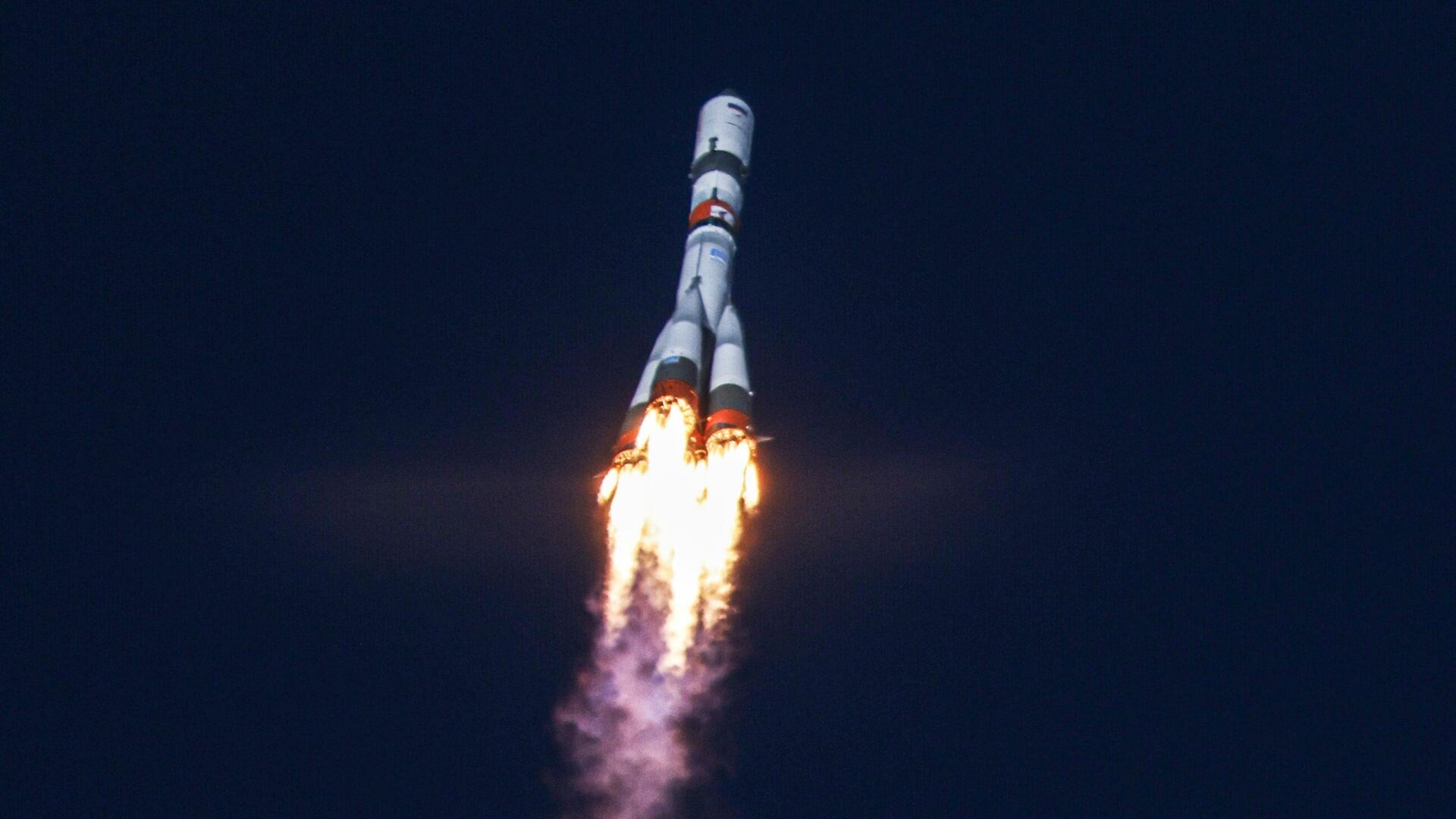First Launch of Russian Methane-Powered Rocket Amur to Take Place in 2030

© Sputnik / Russian Space Agency Roscosmos / RSC "Energia" / Ivan Timoshenko
/ Subscribe
MOSCOW (Sputnik) - The first launch of the Russian-made methane-powered carrier rocket Amur-LNG with a reversible first stage is planned for 2030, Russian Trade Minister Denis Manturov said on Friday.
"This project is being implemented using new organizational approaches and technological principles, which will significantly reduce the cost of the product. It is also designed for the given cost of the launch service. The launch date is set for 2030," Manturov said on the occasion marking Cosmonautics Day.
The Amur rocket is being developed by Russia's Progress Space Rocket Center located in the city of Samara, the minister said.
The design of the Amur rocket began in 2020 at the request of Russian state space corporation Roscosmos. The rocket will have a reusable first stage equipped with RD-0169 engines that are fueled by oxygen and liquefied methane. Roscosmos head Yuri Borisov said earlier this year that the reusable first stage of the rocket could be launched into space more than 50 times, possibly more than 100 times.
Furthermore, Manturov said Russia currently has over 250 satellites in space and intends to launch another 100 in 2024.
"Our domestic orbital group includes over 240 satellites. More than 20 satellites have already been launched into space in 2024 to increase the constellation, with more than 100 planned to be launched before the end of this year. Therefore, we expect to put into space a total of 123 satellites, 70 of them small-sized," he told reporters.
In June 2023, Borisov said that Russia's satellite constellation had reached 225 satellites.
📹🚀 The Angara-A5 launch vehicle successfully propelled the Orion upper stage into orbit. pic.twitter.com/17a0PS5GZW
— Sputnik (@SputnikInt) April 11, 2024
Manturov also said that according to preliminary estimates, about 600 billion rubles ($6.4 billion) would be allocated from the Russian budget for the creation of a homegrown super-heavy rocket for flights to the Moon and Mars.
The project is expected to be implemented in 2025-2035, with the first flight tests to be scheduled for 2033, the minister added.
Cosmonautics Day is celebrated in Russia and some other post-Soviet republics on April 12 to commemorate the first manned space flight by Soviet cosmonaut Yuri Gagarin on April 12, 1961.


